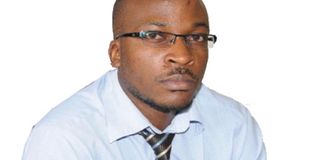Will teach, won’t learn: School fees debate misses the bigger problem

Daniel K. Kalinaki
What you need to know:
- The lousy schooling most of our children are getting, regardless of how little or how much it costs, will always be expensive.
- Many parents know this and are scrambling for a response.
The start of the new school term brought with it the usual heavy traffic jam and, unusually, an important discussion on the rising cost of education after public schools were freed to set their own fees.
Some of the charges are eye watering. However, the steep fees, and the related stories of the hoops parents have to jump through to get their children admitted into “top” schools are mere symptoms of a deeper crisis in the state of our public social services.
If, like your columnist, you were born before 1986 and grew up in Kampala in a lower-to-middle class family, you probably went to a public school like Kitante, Nakasero, Shimoni, Bat Valley, Buganda Road, or similar. The choice was often informed by where the family lived so you could walk to school. On rainy mornings you crowded into the first government car that came along or hopped onto the creaking UTC buses that plied the city.
The return journey was often on foot, to allow for the playing of games and all manner of mischief and, most importantly, to save the fare in order to indulge in the sinfully delicious roadside fried Nile Perch or pancakes.
Sickness, when it came, involved a quick trip to the nearest neighbourhood nurse or clinic (in our case that of my godfather, Dr Zirembuzi, and the ridiculously kind and patient Family Doctors) where you would get treated and pay later, when finances improved. More serious cases led to Mulago or one of the missionary-founded hospitals across the city where, save for the long queues, treatment was often on hand and affordable, and dispensaries actually dispensed drugs (insert gasp from millennials here).
It was a pretty basic life but it was a happy life and it worked. Most importantly, parents did not have to steal, beg or lie to take their chidren to hospitals or pay through the nose to give them an education.
The privatisation and liberalisation programmes of the 1990s were meant to take government out of business and allow it to retain only a regulatory role. Instead, it took government not just out of business but also out of the provision of many vital social services altogether, particularly health, education and public transport.
Liberalisation was supposed to offer private choices for those interested and able to afford them, not to destroy the public services. Some parents took their children to Katatumba Academy, others took theirs to Kamuli Boys; some would inevitably run ahead of the pack, but none would be left behind. The collapse of public services, particularly in health and education, has condemned and continues to condemn entire generations of Ugandans to a future in which they are unemployed and unemployable. Children who sleepwalk through the ‘free’ UPE and USE programmes might be attending school but they are not getting an education.
Many parents know this and are scrambling for a response. Those with the means, including the government officials responsible for the quality of these programmes, have shipped their children off to quality private schools in and out of the country where termly fees can get you a used kidney, still warm.
Others are scrambling to get their children into the mushrooming private schools or the few credible public schools left. The ensuing competition for the few available places has pushed up entry and tuition fees; the resultant pressure to maintain market share has created incentives for many “top” schools to cheat. It is a vacuous vicious circle.
We must return to basics. What kind of education do our children need in a world of that is, on one hand, dealing with advanced robots, artificial intelligence, virtual reality and, on the other, with primitive insularity, violent religious extremism and racism? What kind of schools, teachers and learning methods do we need to give our children the skills to navigate an uncertain future and a world where there is so much freely available information and yet incredibly high levels of ignorance?
Parents and citizens must take matters into their own hands; those in charge, even if they knew what to do, are utterly lacking in any sense of noblesse oblige.
The lousy schooling most of our children are getting, regardless of how little or how much it costs, will always be expensive. A good education, on the other hand, is priceless.
Mr Kalinaki is a Ugandan journalist based in Nairobi. [email protected] &Twitter: @Kalinaki




